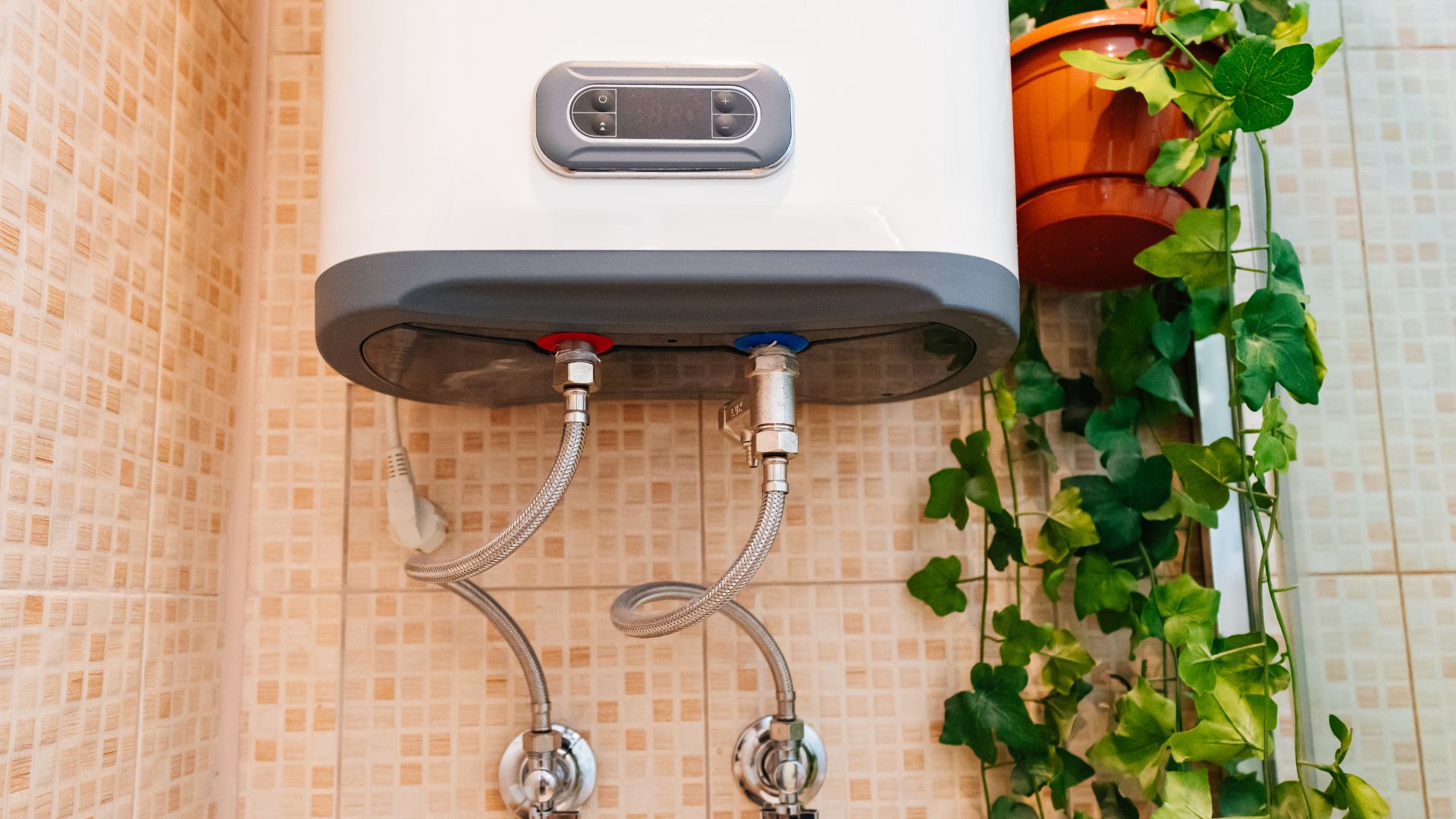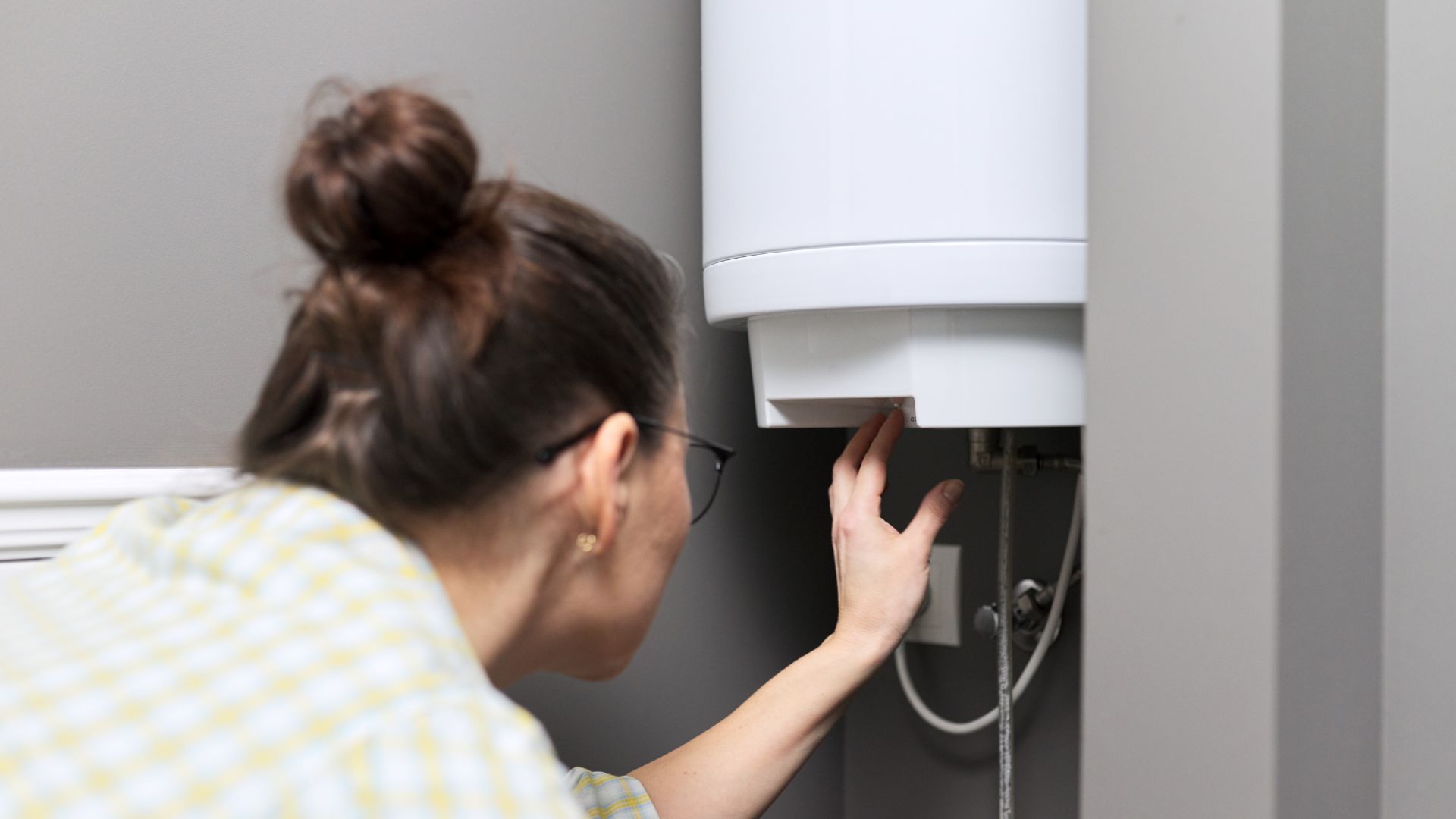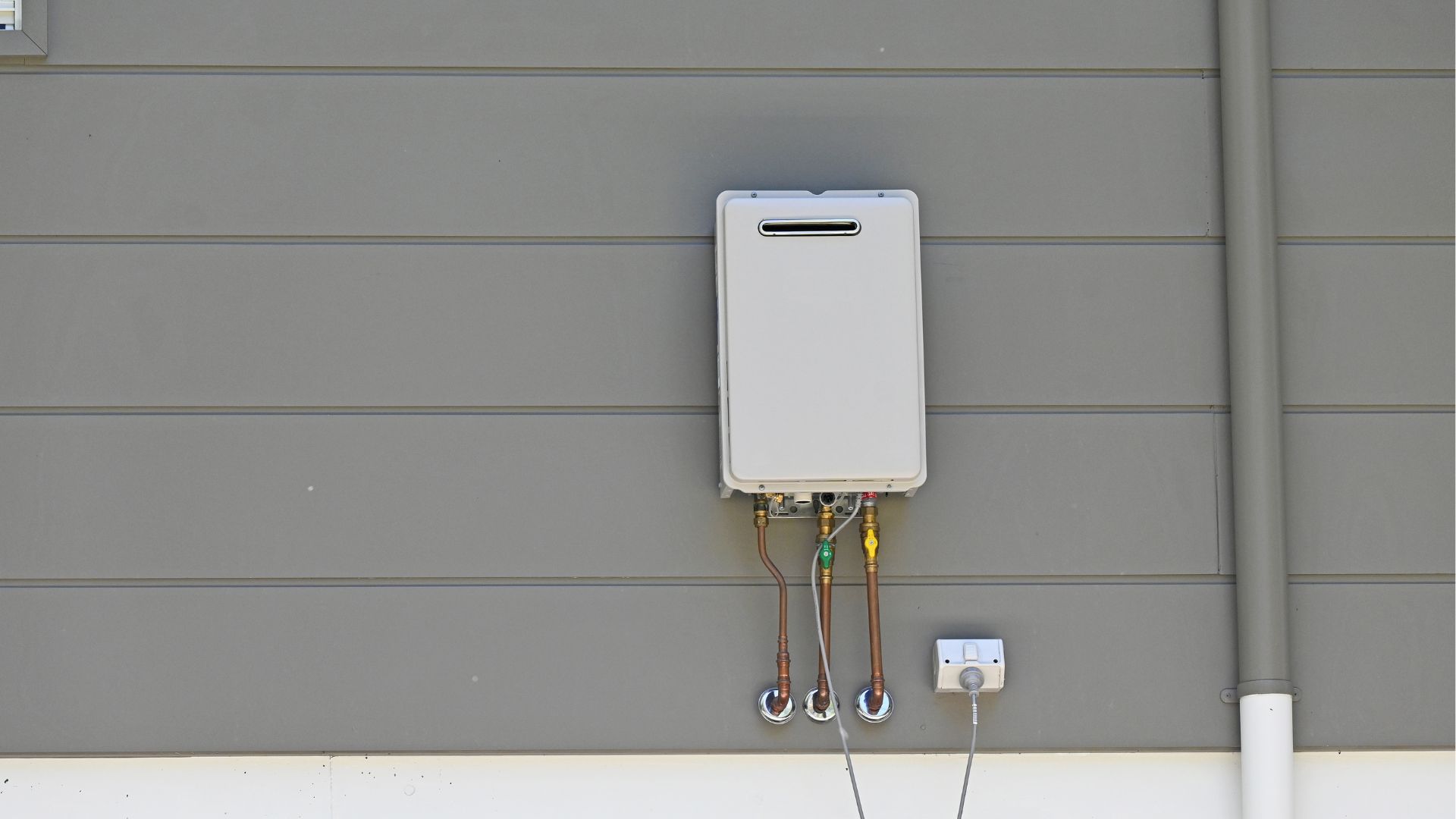7:00AM to 5:00PM
Living in a compact home often means cleverly using every inch. When picking an ideal hot water heating solution, small spaces call for streamlined systems that economise space and energy consumption.
Electric water heaters answer that constrained home challenge beautifully – no bulky fuel tanks cluttering corners or exhaust venting hogging outside walls required!
Several electric heater options now exist, delivering an endless stream of hot water on-demand or ample reserves stored ready to flow, all from a unit with minimal square footage impact.
By matching lifestyles and hot water usage needs to the best-fit electric systems, tiny homes unlock responsive flow, higher efficiency, and renewable integration in a package custom-tailored to conserve money, space and hassle simultaneously.
The latest electric heating advancements make cosy, energy-thrifty hot water enjoyment a reality, even in the most compact residential settings. Let’s take a look!
An electric hot water system heats water for household use on-demand by passing it through heating elements (electric resistance) or a heat exchanger capturing ambient heat via a compressor (heat pump method). This rapidly warms incoming cold water to the desired output temperature as it flows to taps.
Electric resistance systems use coiled electrical heating elements submerged in a storage tank or exposed in a chamber where water passes. Controlling sensors activate the heat coils when the designated thermostat set point (typically 50-60°C) drops as hot water taps drain tank reserves or cold flows into instant heating chambers.
The heating elements raise the tank/chamber’s internal temperatures by directly converting electrical current to heat. 240-volt power enables faster heating across less thick, durable metal coil rods.

Heat pumps first extract existing heat in outside air or ground loops via compressor exchange instead of purely resistive coils, requiring less wattage input for the warmed yield output of 50 °C. But tankless heat pumps handle only one tap flow restricted rate.
Rather than continually maintaining a large volume of hot water 24/7, electric systems heat water directly on tapping demand or in insulated batches, optimising smaller homes’ heat-up, storage, and draw-down process.
Standard electric storage tank water heaters come in compact sizes ranging from 25-400 litres to suit tight residences. These self-contained units consist of insulated reservoirs continually heating fresh water and stand only 1-1.5 metres tall in smaller capacities. Their freestanding, wall-mounted, or cupboard-fitting design flexibility simplifies finding space, even in flats.
Household electric storage heaters typically run on single-phase 240V mains power and require a dedicated circuit. If your existing electrical setup lacks capacity, connecting a new storage heater may require upgrading the switchboard and running new cabling. Installation by a licensed electrician ensures compliance with AS/NZS 3000 wiring regulations.
The average running costs for small tank electric storage heaters fall in the mid-range of water heating options. If large enough tanks allow, off-peak electric heating can utilise overnight lower kWh rates for a better economy in some areas.
Tankless electric instantaneous heaters activate only on water flow detection, saving energy during inactive periods. Compact indoor wall-mounting models supply 4-32 litres per minute, perfect for low-demand occupants. Their endless output suits a single shower or sink at a time.

Tankless heaters avoid heat losses from a constantly warm storage tank, so they often achieve higher energy efficiency star ratings. Some eco-friendly builds qualify for state government rebates and incentives. However, flow rate restrictions may disappoint those expecting simultaneous multiple-tap use.
Installation requires 240V hardwiring by licensed electricians, often with 30-40 amp dedicated circuits. Instantaneous electric models also have minimum inlet water pressure requirements of around 200 kPa to trigger element activation. Undersized piping restricts flows.
While providing an endless hot water stream, tankless electric units lack a reservoir as a buffer against overloading. Spacing out hot water makes them an excellent fit for tiny homes with primarily 1-2 occupants.
Are you seeking a green, energy-thrifty appliance? Heat pump water heaters capture ambient air heat, not just straight electric resistance, enabling higher efficiency. They work like a reverse fridge—extracting heat from the surrounding air and transferring it into the water tank via a compressor.
Small 150-270 litre heat pump units still produce ample daily hot water volumes for 1-2 people and can be installed outdoors or indoors with sufficient airflow, such as in a garage or well-ventilated laundry room. They operate most efficiently in warm climates, but some models include a booster element for cool conditions.
While pricier upfront than essential electric storage tanks, heat pumps often qualify for bonus small-scale technology certificates (STCs) under the Renewable Energy Target scheme based on the amount of renewable energy they displace, reducing net cost.
With a high efficiency of 300% (3 energy units of heat moved per 1 unit of electricity input), a small 1 kW heat pump can generate over 3 kW equivalent water heating. They operate exceptionally quietly between 37-45 dBA.
Installation requires a licensed plumber and electrician to mount the unit, connect it to the cold water supply and hot water outlets, and wire it to a 240V circuit. Upgrading pipe insulation and adding tempering valves ensures safe 60°C tank storage while reducing heat losses.
Choosing the right size electric hot water system is crucial for ensuring your small home has an adequate hot water supply while maximising energy efficiency and space utilisation. Here are some key factors to consider when sizing your system:
To calculate your daily hot water demand, consider the following typical usage patterns in Australia:
For example, a household of 2 people with average shower habits (50 litres each), one washing machine load (40 litres), and kitchen sink usage (15 litres) would require approximately 155 litres per day.
Based on this daily demand, you can select an appropriately sized electric hot water system. For smaller homes, a 125-160 litre tank is often sufficient for 1-2 people, while a 250-315 litre tank suits 3-4 people.

However, balancing tank capacity with available space and energy efficiency is essential. Larger tanks take up more room and have higher heat losses, which can be a concern in compact homes. In these cases, a tankless instantaneous system or a heat pump with a smaller tank might be more suitable.
It’s always advisable to consult with a professional hot water specialist who can assess your specific needs and provide tailored recommendations based on your household size, usage patterns, available space, and energy efficiency goals. They can also ensure the system is sized according to Australian Standards and local regulations.
When selecting an electric hot water system for your small home, several factors must be considered, including your household size, hot water demands, available space, and energy efficiency goals. By understanding the different types of electric hot water systems available, such as storage tank units, tankless instantaneous systems, and heat pumps, you can make an informed decision that meets your specific needs.
Working with a professional hot water specialist who can assess your requirements, recommend the appropriate size and type of system, and ensure compliance with Australian Standards and local regulations is essential. They can also help you navigate different options’ upfront costs, operating expenses, and potential energy savings, enabling you to invest smartly in your home’s hot water supply.
If you’re in the Gold Coast area and need expert guidance on electric hot water solutions for your small home, look no further than Gold Coast Plumbing Company. Our team of experienced plumbers and electricians specialises in installing, maintaining, and repairing all electric hot water systems. We pride ourselves on providing personalised solutions prioritising your comfort, energy efficiency, and budget.
Contact Gold Coast Plumbing Company today to schedule a consultation and take the first step towards enjoying a reliable, cost-effective, and space-saving electric hot water solution in your small home.